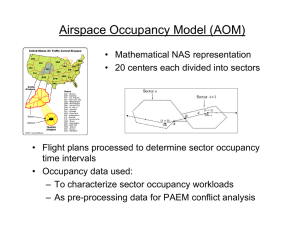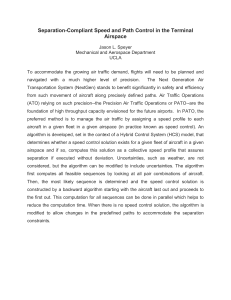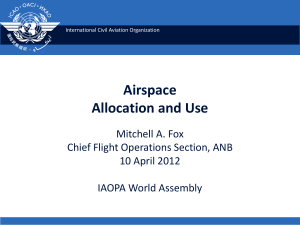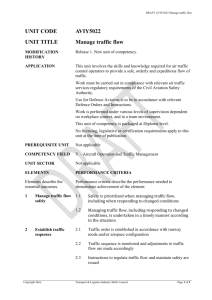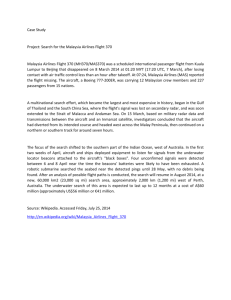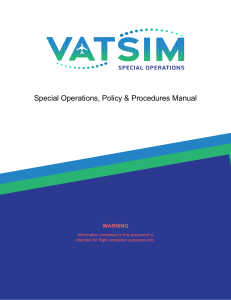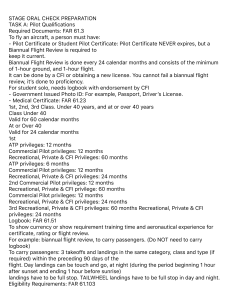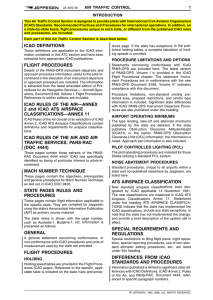On Generating Trajectories in Response to Dynamic Weather Systems
advertisement
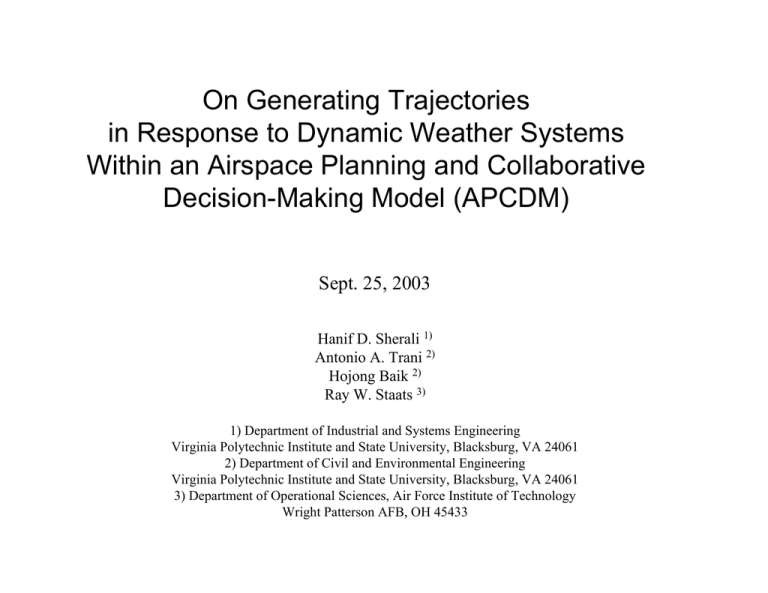
On Generating Trajectories in Response to Dynamic Weather Systems Within an Airspace Planning and Collaborative Decision-Making Model (APCDM) Sept. 25, 2003 Hanif D. Sherali 1) Antonio A. Trani 2) Hojong Baik 2) Ray W. Staats 3) 1) Department of Industrial and Systems Engineering Virginia Polytechnic Institute and State University, Blacksburg, VA 24061 2) Department of Civil and Environmental Engineering Virginia Polytechnic Institute and State University, Blacksburg, VA 24061 3) Department of Operational Sciences, Air Force Institute of Technology Wright Patterson AFB, OH 45433 Research Goals • To create alternative surrogate flight plans for given flights considering – Severe weather conditions, and – Aircraft performance. • Each flight plan is generated in terms of a flight trajectory defining by a series of way-points between the origin and destination airports. Each way-point is represented as (x, y, z, t). • Resulting flight plans are used as basic input data for the model comprised of three-sub models: – AOM (Airspace Occupancy Model) – PAEM (Probabilistic Aircraft Encounter Model), and – APCDM (Airspace Planning and Collaborative Decision Making Model). Airspace Planning and Collaborative Decision Model (APCDM) Aircraft Point Performance Model NAS Weather Representation Airline Operational Rules Collaborative Plans Aircraft Trajectory Generator Airspace Occupancy Model (AOM) Aircraft Encounter Model (PAEM) Air Traffic Control Operational Flight Rules NAS ATC Sector Representation NAS ATC Sector Capacity Airspace Planning & CDM Model (APCDM) CDM Decision Support An Example of a Flight Path Generation • Given: – A flight: JAX, FL MIA, FL. (GCD: 282 nm) – Aircraft: Airbus 320 (loaded 80% of Payload). – Cruising Altitude: FL250. – Severe weather situation is expected for next 60 minutes. T = 0 min T = 20 min T = 40 min T = 60 min JAX MIA • Find the best, and second to best flight path for the flight. How Do We Collect Weather Data? Source: NWS
